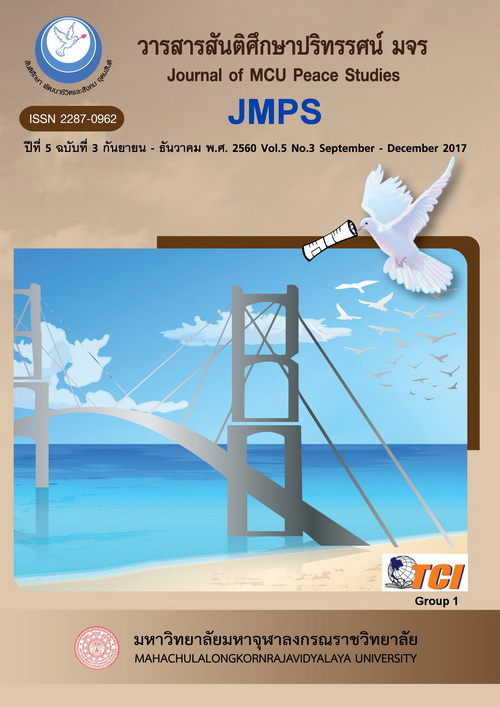The Role of Constitutional Court Amidst Political Conflict in Thailand
Main Article Content
บทคัดย่อ
The study on the role and power of Constitutional Court amidst political conflict in Thailand which occurred during 2006 – 2014 was aimed on the purposes as follows: 1) to examine the role of the Constitutional Court amidst the political conflict, 2) to examine the problems and critiques about the role of the Constitutional Court amidst the political conflict, and 3) to recommend the guideline for the reformation of the Constitutional Court under the democracy concept. This study was conducted in accordance to
the descriptive research methodology consisted the revision of related literatures, secondary data from publications, and the electronics sources.
Result of this study revealed the obvious and outstanding political roles of the Constitutional Court amidst the raising of political conflict, which was also considered as the cause of the critical impacts towards the country’s democracy. The mentioned roles were: the abolition of election results which was the violation of the general intention of the citizens, the recall of elected prime minister, the dissolution of political parties, the intervention of act of government, and the interpretation of the Constitutional Law under the intention to increase the Constitutional Court’s power. Since the mentioned roles had also caused negative results towards the country’s democracy and had led to the critiques among the academics in the fields of Laws and Political Science, this study therefore recommend the guidelines for the reformation of the Constitutional Court in 2 aspects: 1) the dissolution of the Constitutional Court and the transmission of its role to the Judges for Constitutional Escort , and 2) the maintaining of the Constitutional Court’s roles and judicial status. However, regardless of the Constitutional Court’s status, the most important issues to be considered and clarified was the backgrounds of the power of the Judges for Constitutional Escort or the Judges of the Constitutional Court, which was expected to be derived from the social contract and the citizens’ willingness. In addition, another suggestion was the amendment of the Constitutional Law regarding the clarification of the Constitutional Court’s jurisdiction under the concept of self-restrient.
Article Details
ทัศนะและความคิดเห็นที่ปรากฏในบทความในวารสาร ถือเป็นความรับผิดชอบของผู้เขียนบทความนั้น และไม่ถือเป็นทัศนะและความรับผิดชอบของกองบรรณาธิการ ยินยอมว่าบทความเป็นลิขสิทธิ์ของวารสาร


